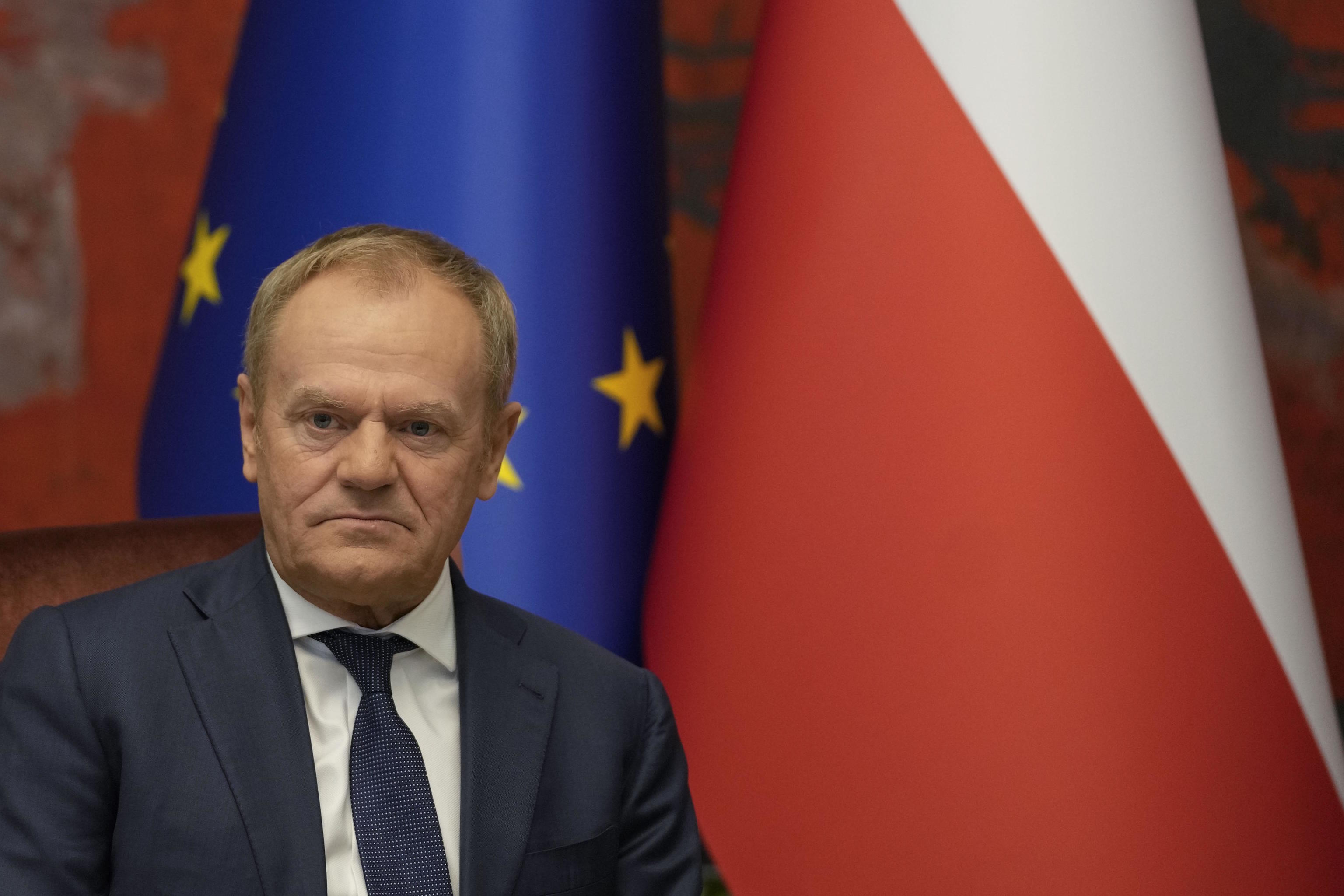"I have just received a message from Warsaw informing me that we have had an incident with the Russian shadow fleet. Two days ago, we had another... Every week there is some incident in our region, in the Baltic Sea. Almost every day. Drone attacks are the most spectacular, but we have similar provocations almost daily."
The Prime Minister of Poland, Donald Tusk, has exposed in this way the situation his country is facing. Almost daily incidents with Russia but also with Belarus. "Our new routine is the confrontation with Belarus, also with illegal immigration organized by Putin and Lukashenko," he added during his speech at the opening session of the European Political Community (EPC) meeting taking place in Copenhagen this Thursday.
"We are at war. A new type of war, very complex, but it is war," he summarized in a very blunt manner. Indeed, a hybrid confrontation where conventional weapons and forces are combined with disinformation, the use of provoked migratory movements, and threats to natural resources.
His intervention during the day followed the statements he made upon his arrival, where he warned that "if Russia were to win, the consequences for Europe and the West would be dramatic." "That is why this is also our war. In Poland, no one doubts it," he warned.
And for this, Rutte considers the anti-drone wall to be a basic tool. This is the same position shown by the President of the European Commission, Ursula von der Leyen, the Prime Minister of Denmark, Mette Frederiksen, and the Prime Minister of Finland, Petteri Orpo. However, the Polish leader acknowledged that not all European leaders share the same enthusiasm for this tool, and there is a very important voice that doubts it: the German Chancellor, Friedrich Merz.
"Some voices were raised. For example, Chancellor Merz said that he does not believe that this idea of the drone wall guarantees total effectiveness. My response was very frank, some would say brutally honest: if someone is looking for absolute methods or 100% guarantees in terms of security, they will not find them," he explained upon his arrival at the meeting held in the capital of Denmark, referring to the discussions that European leaders had during the informal European Council.
With this statement, it is better understood why Frederiksen insisted yesterday, during the press conference where the meeting of EU presidents and prime ministers took place, that even with the deployment of the anti-drone wall, Russian artifacts would still enter EU territory. But its supporters, including NATO Secretary General Mark Rutte, argue that it is essential to have a much more agile, suitable, and cost-effective system than deploying fighter jets.
European leaders argue that it is very important to seek advice from Ukraine and leverage its knowledge to develop this tool. This is what the President of the country, Volodymyr Zelensky, has offered to the EU. "The most important thing is that today Europe is truly facing a drone threat and Ukraine has the necessary experience," he stated upon his arrival at the EPC meeting.
During these two days in Copenhagen, special attention has also been paid to another aspect directly linked to Ukraine: the need to support the country economically and the possibility of resorting to frozen Russian assets.
The country has over 150 billion euros withheld as a sanction for its invasion and attacks on Ukrainian territory. The Commission and a large part of the member countries want to use this amount to finance the reconstruction of Ukraine and the rearmament of its army, but this poses a serious problem for Belgium: the funds are frozen in Euroclear, a company based in Brussels, and the country's Prime Minister, Bart De Wever, completely rejects their "confiscation."
"A group of countries has decided that we are going to take the money in Brussels and start giving it to Ukraine in the form of credit and they say it is not a confiscation. Ceci n'est pas une confiscation, but it is a confiscation. If I take your money and use it, I think you would say it is a confiscation," De Wever stated sarcastically and pointedly during the press conference he held on Thursday in the Danish capital. The message was directly aimed at Von der Leyen herself, who this week claimed that her plan for Russian assets is by no means a confiscation.
De Wever explained that this decision could have serious consequences in terms of legal security, that Moscow would initiate a process of litigation in international courts against Belgium that would last for years, and that there are other countries where frozen Russian assets accumulate but they completely avoid offering them due to the problems it entails. "I want solidarity," demanded the Prime Minister.
